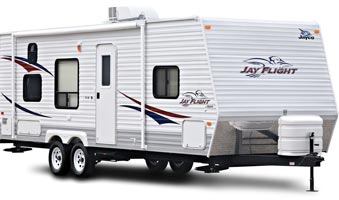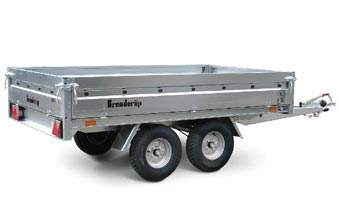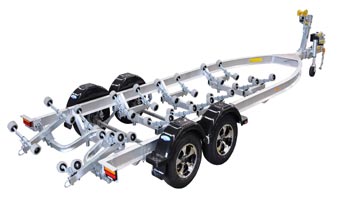TRAILER REPAIRS & MAINTENANCE
SIMPLE THINGS TO REMEMBER WHEN REPAIRING & MAINTAINING YOUR TRAILERS & CARAVANS
It is always important to ensure the safety of your passengers and whatever it is you are towing. Remember that the heavier the trailer, the more crucial it is to ensure proper working condition as failure is likely to cause major issues not only with the trailer but the towing vehicle as well. There are only a few key components in your trailer that we need to service to ensure your safety. These are simply, the coupling or tow hitch which connects the trailer to your vehicle, the indicators and brake lights along with their electrical connector, the wheels and suspension, braking systems and lastly the chassis, tongue and jockey wheel/jack.
- Storing your trailer correctly is the first step to maintaining it in top condition
Ensure that your trailer or caravan is covered to reduce the chances of rain pooling and causing rust, or leaking from weathered seals etc. It can be helpful to store your trailer with the front elevated so any rain that may get through the cover will run off instead of pooling. Keeping it clean and free from dirt will also reduce the chances of rust as dirt will hold moisture for longer when wet.
- Always use designated trailer tyres
Trailers require special tyres and are not the same as normal passenger tyres. Car or light truck tyres have more flexible sidewalls, which can result in trailer sway problems. The stiffer, heavy duty sidewalls of designated trailer tyres are designed to control and reduce any sway problems as this may become very dangerous at higher speeds, especially with top heavy loads.
- Service your brakes
The brake requirements for trailers are quite different depending on their weight and capacity. It is imperative that you service your brakes regularly or at least have them checked, especially before a big trip. You will never want to be going down a mountain range with a couple of tonnes on the back and have the brakes fail.
- Wash your trailer
If you have a boat trailer it is a good idea to wash it after every use, especially if you have used it in salt water. This will help to minimise corrosion and protect your trailer. Make sure you clean all the undercarriage as well and get as much dust and mud off as this will also cause extra wear and tear on moving parts, a little like sand paper where the dirt builds up. Be sure to remove any pooling water before putting it away.
- Grease, grease and more grease…
A lot of trailer issues will come from suspension and axles being exposed to the elements and bearings breaking due to friction. Remember that your trailer will be carrying a lot of weight and a dry bearing will simply grind itself away. So make sure you repack your bearings with grease before a big trip to keep your joints and axles moving smoothly, especially if it has been sitting in the elements for quite some time. Don’t forget to grease the tongue or tow hitch, springs, rollers (boat trailers), jockey wheel and winch if you have one.
- Kick the tyres
Your trailer’s tyres will undergo a lot of punishment with the load they carry. They may even wear out faster than your normal car tyres (if used frequently). It is important to check the tyres regularly as all tyres will lose air over time. If your trailer has been sitting for some time, then make sure you check them and if they need filling, take the trailer to the nearest air refill with as little weight as possible and make sure you fill the tyres according to their specifications.
- Lights & indicators
An important aspect of road safety is communicating what you are doing or intend to do as well as letting them know you are there. Your lighting system may not directly affect you, but indirectly it could save your life or property. Always check that your brake lights and indicators are working before any trip. Ensure that the connector cable is not corroded and that the wiring loom is intact without any breaks. If you find any cracks or breaks ensure the cables inside are still ok and then wrap with electrical tape to seal the cables back up. If you are storing your trailer for some time then you should cover the connector to keep out any moisture that might affect your cabling.
- Structural issues
Trailers undergo a lot of strain on their chassis and connecting tongue. While these areas have little to no moving parts it is always a good idea to check the welds for cracks and other structural issues like rust, warps or damage.
If you are not confident in dealing with any of these issues then perhaps we can help you. Call us at your earliest convenience and we can answer any of your questions or book your trailer/caravan in for a service.
WHAT COMES WITH OUR SERVICE?
- Grease
All joints and bearings will be checked for smooth functioning and fully greased. Please note that all bearings should be checked and greased before any long trips.
- Structural check
We thoroughly check for any structural issues, including cracks, warps and twists. All which can cause issues when under tow.
- Brake check & adjustment
The brakes on any trailer or caravan need to be in good condition so they don’t cause your car’s brakes to overheat and warp with the extra weight and therefore stopping power required.
- Axles & Suspension check
A full inspection of your trailer’s axles and suspension. They need to be in good condition to reduce swaying and dangerous situations when under tow. If there is any issue here a trailer or caravan can cause your vehicle to lose control.
- Electrical systems check
A very important safety issue. Proper functioning of your lights will ensure the safety of not only yourself but everyone else on the road.



